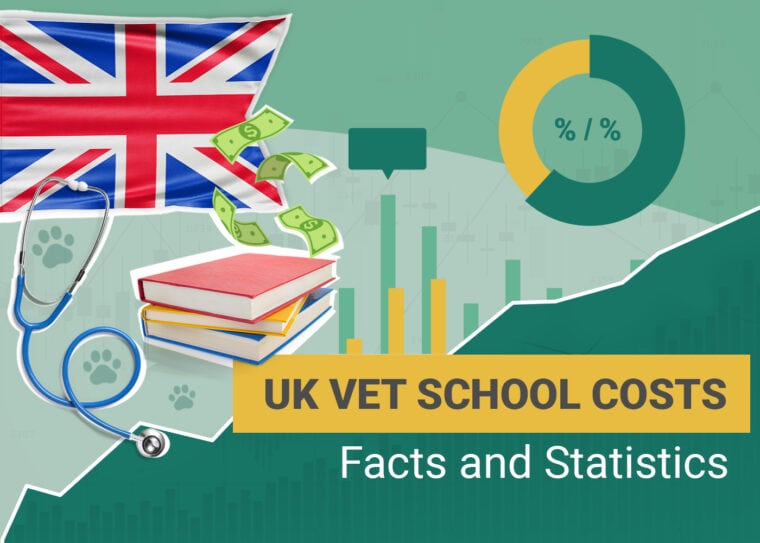
Click to Skip Ahead
Note: This article’s statistics come from third-party sources and do not represent the opinions of this website.
You want to go to vet school, and you’ve decided that the United Kingdom is your destination of choice. But, how do you decide whether attending vet school in the UK is a financially viable option for you? How much does it cost to attend veterinary school in the UK?
The annual cost of studying veterinary medicine at a university in the UK can be as much as £32,000. The cost can be broken down into five major areas. They’re tuition fees, accommodation and living expenses, and books and equipment.
The average cost of studying veterinary medicine can be influenced by several factors. They include course duration, location, and university reputation.
In this guide, we’ll share facts and statistics about attending veterinary school in the UK.
Top 10 Statistics of Vet School Costs in the UK
- Veterinary school tuition in the UK is around £9,000 a year for home students and between £14,000 and £19,000 for international students.
- The cost of attending veterinary school in the United Kingdom is much higher than in other countries. However, this profession has excellent job prospects and salaries.
- The other main expense that students should be aware of is living costs. University accommodation can range from between £5,000 and £10,000.
- The cost of vet training will differ between universities and cities. It’s due to varying living expenses in different locations across the UK.
- Each year, over 200 candidates apply for the Veterinary program at the University of Edinburgh and University of Glasgow. But only 100 candidates get selected after thorough screening and testing.
- Only 25% of people graduating from veterinary school in the UK are British or Irish. The rest are international students, mainly from Eastern Europe and Asia.
- You must be willing to work hard while attending veterinary school in the UK. Most students study for 40-60 hours per week.
- To become a veterinarian in the UK, you must have completed a degree from a veterinary school and passed the RCVS exams.
- Many veterinary students in the UK are sponsored by their employers. It means that they do not have to pay tuition fees.
- The cost of veterinary education can be a stumbling block for many students. But the good news is that grants and funding are available to help you pay your way.

What is The Cost of Attending a Vet School in the UK?
1. Veterinary school tuition in the UK is around £9,000 a year for home students and £14,000-£19,000 for international students.
(RVC)
The tuition cost for veterinary schools in the UK varies depending on the institution. But, £9,000 per year is the average for home students. This figure doesn’t include living expenses.
Besides loans and grants, many veterinary students work part-time during their studies to offset costs. Some veterinary schools have part-time positions available as well.
Also, veterinary students are required to perform clinical work at a veterinary clinic. They work between 40 and 80 hours each week during their first two years of veterinary school.

2. The cost of attending veterinary school in the United Kingdom is much higher than in other countries. But this profession has excellent job prospects and salaries.
(OECD)
In the UK, the costs of veterinary courses are high compared to the rest of Europe. The good news is that the profession of a veterinarian has a good salary and job prospects.
If you are looking for a viable career, becoming a vet may be right for you due to the demand for this profession across the globe.
3. The other main expense that vet students should be aware of is living costs – university accommodation can range from between £5,000 and £10,000.
(Harper Adams)
One of the major expenses is university accommodation. It can cost between £5,000 and £10,000 a year. This figure may change depending on your choice of university and whether you opt to live in halls or self-catering accommodation.
If you live away from campus, you need more money for travel expenses.
The cost of private accommodation is even higher and will depend on your location and the quality of the property. Remember that you’ll be paying for this for four years. So, it’s crucial to factor this into your budget.
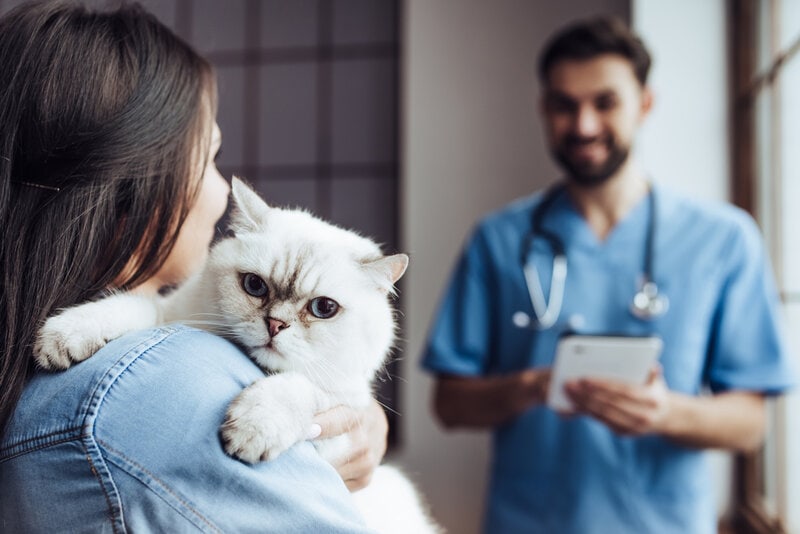
4. The cost of vet training will differ between universities and cities. It’s due to varying living expenses in different locations across the UK.
(THE STUDENT)
The average living expenses when undertaking a veterinary degree is approximately £8,500 per year. It covers accommodation, food, and other necessities, such as clothing and travel to university.
Usually, these costs increase during the clinical years because students need to live near the school. It often involves paying more rent for larger properties or sharing with more housemates.
The tuition and living costs will be different between universities and cities. It’s due to varying living expenses in diverse locations across the UK. Veterinary schools located in large cities, such as London, Edinburgh, and Birmingham are more expensive.
How Many Students Go Vet Schools?
5. Each year, over 200 candidates apply for the Veterinary program at the University of Edinburgh and University of Glasgow. Only 100 candidates get selected after thorough screening and testing.
(ED)
The University of Edinburgh is one of the leading veterinary schools in the UK. They receive many applications each year for only 100 places to study veterinary medicine at their university.
The veterinary school provides a four-year program. It consists of three years of pre-clinical training and one year of clinical training.
Also, the school has different entry requirements for applicants from the European Union and overseas.

6. Only 25% of people graduating from veterinary school are British or Irish. The rest are international students, from Eastern Europe and Asia.
(RCVS)
In the UK, there are about 8,257 students enrolled in a veterinary course. Of these, around 2,700 are UK natives. It accounts for 25% of the total number of students.
There are various reasons why many non-British students attend veterinary school in the UK. The main one is that they have graduated with a veterinary degree in their home country. So, they wish to gain further experience by completing veterinary training in the UK.
Almost three-quarters of vet students are non-UK nationals. EU nationals account for 8.5% and international students 14.4%.
7. You must be willing to work hard while attending veterinary school in the UK. Most students study between 40-60 hours per week.
(University of Nottingham)
Studying in a veterinary school is challenging. So, you must be prepared to spend a great deal of time in the library and the lecture hall. Besides, you will have clinical hours that you need to attend.
Learning to be a veterinarian requires long hours of studying, as well as a lot of dedication. Most students attend classes for 40-60 hours per week while classes are in session. Many will continue to study on their own as well.

Alternative Fees Payment in a Vet School and Requirements
8. To become a veterinarian in the UK, you must have completed a degree from a veterinary school and passed the RCVS exams.
(RCVS)
Veterinary surgeons in the UK must complete undergraduate studies from a university veterinary school. Also, one must pass the RCVS exams to be registered with the Royal College of Veterinary Surgeons.
You can study at a vet school for five years. If you have already gained a degree in another subject, you can study at a college for three years.
9. Many veterinary students in the UK are sponsored by their employers. It means that they do not have to pay tuition fees.
(University of Surrey)
If you’re employed, your employer may decide to sponsor you. It’s the best route to take. It will reduce your financial burden. Also, it will allow you to focus on other aspects of your career without having too much stress over finances.
If you are offered sponsorship, you will not pay tuition fees for your course. Some students who study veterinary medicine at a university in the UK can be awarded a veterinary bursary. They won’t pay tuition fees for their undergraduate degree.
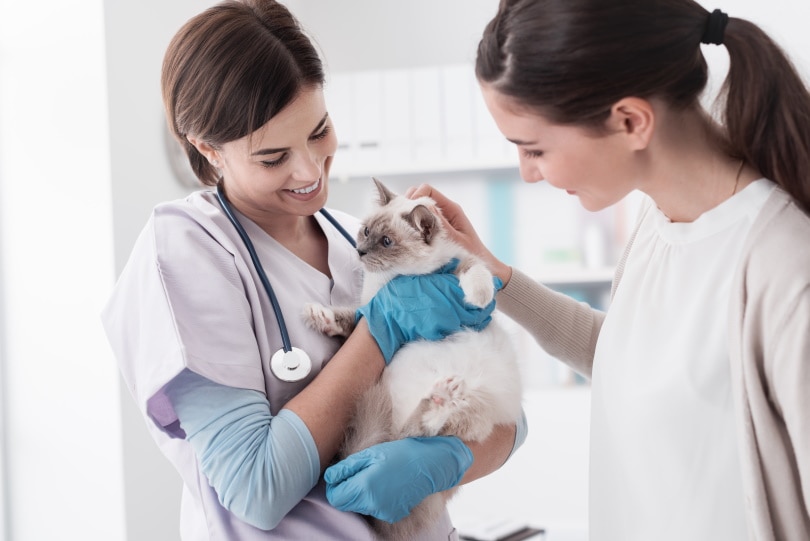
10. The cost of a veterinary education can be a stumbling block for many students. But, the good news is that grants and funding are available to help you pay your way.
(Top Universities)
Veterinary education in the UK can be expensive, with tuition fees averaging around £15,000 per year. If you’re considering a career in veterinary medicine, you should understand the costs of attending vet school.
While most students do not have any trouble financing their studies, others are faced with financial challenges. But the good news is that grants and funding are available to help you.
Frequently Asked Questions about How Much it Costs to Attend Veterinary School in the UK
How long do you attend veterinary school in the UK?
In the United Kingdom, a Bachelor of Veterinary Medicine and Surgery (BVMS) degree takes a minimum of five years to complete. But most students take a six-year course. It’s possible to study for a four-year degree, but you need to have a good A-level in chemistry and biology.
You also need at least three years of animal-handling experience. New entrants to the course are expected to be aged between 18 and 30. But, a mature student with a degree can apply to study for a veterinary degree.
To gain access to higher education, you’ll need at least three A-levels or equivalent qualifications.
(JYI)

Is the veterinary cost inclusive of tuition and other expenses?
Yes, the cost of a vet school is inclusive of tuition fees and other expenses. It means that when you receive your bill, it will include all costs for your program.
The only extra expense that you will have is personal living costs, such as food and housing. These can vary depending on where you choose to live while attending vet school.
Also, a few schools in the UK offer a scholarship that covers your tuition fees. But, most of the schools do not offer any scholarships.
Is attending a vet school in the UK worth it?
Many people who are thinking about going to a vet school ask whether it’s worth it. Yes, it’s worth it. To become a licensed veterinarian in the UK, students must complete a minimum of five years of undergraduate training.
Students may pursue an undergraduate program. You can go to an accredited university or via an institution that operates on a college campus. Many British veterinary schools are located at colleges affiliated with universities.
Then, you’ll be eligible to work as a qualified professional. But, if you have not attended a vet school, your chances of getting a job are slimmer.
If you have the chance to go to one of these schools, take it because it will be worth it.
(The Student Room)
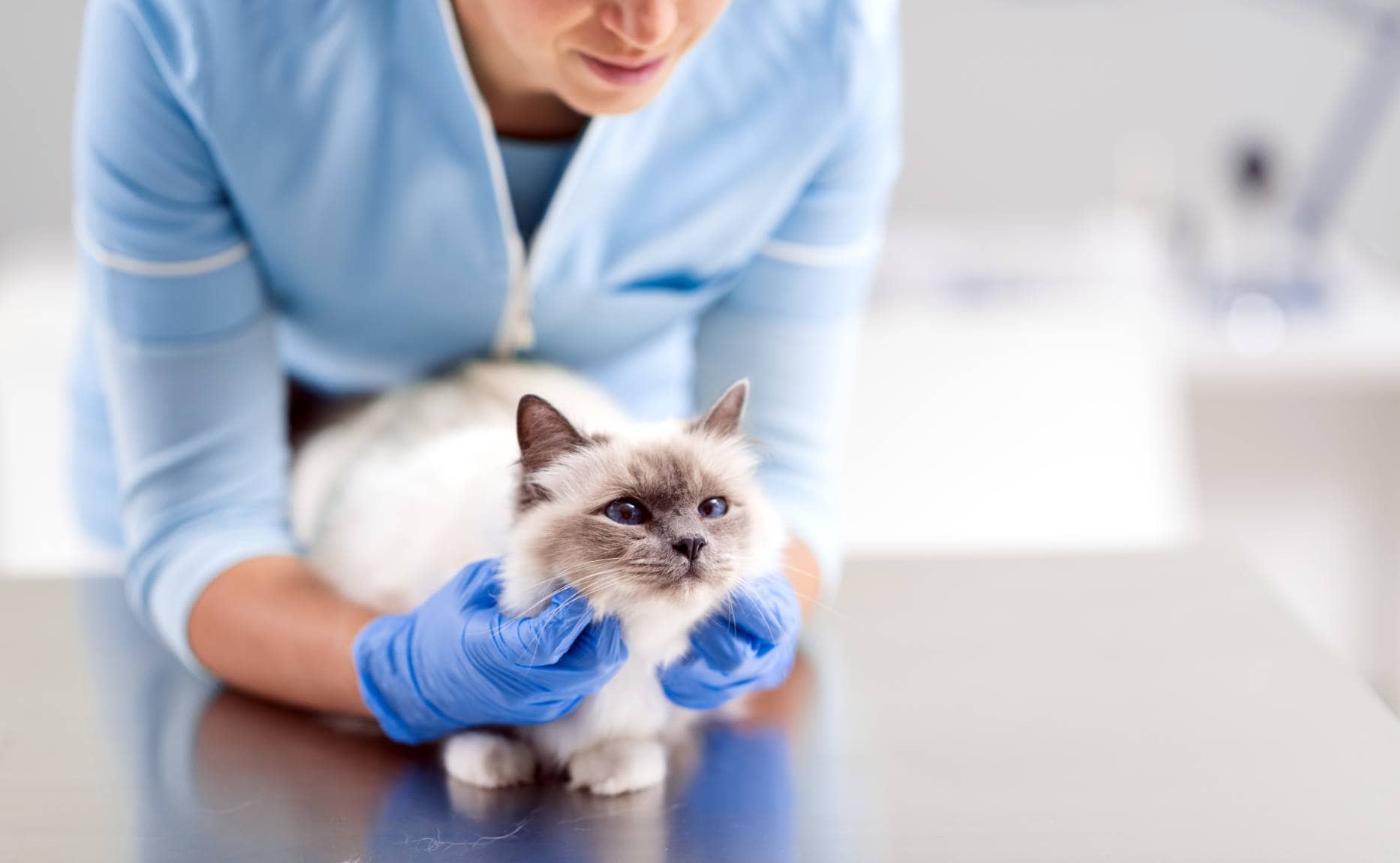
What GCSE do you need to be a vet in the UK?
There are many different types of qualifications you can gain to be a vet in the United Kingdom.
Before you can even think about training to be a vet, you need to make sure that the subject you choose will lead you in that direction.
To become a vet, you will need to achieve at least an A grade in a GCSE Science subject. It must be a double science (Biology and Chemistry). The grades needed for the rest of the subjects vary depending on which college you attend. But at least a B grade is required for Math and English Language.
Is vet school harder than med school in the UK?
Yes, it’s more challenging than a medical school.
It’s uncommon for veterinary students to do many extra-curricular activities during their time in vet school. Contrary to most human medical schools, many aspiring veterinarians are hardworking.
Additionally, veterinary medicine has become challenging since its inception. This is due to rapid progress in science and technology, which allows vets to achieve better results for pets with less effort from their owners.
This way, it’s harder for new graduates to compete with experienced vets when obtaining clients who have no idea what they’re looking for in a vet.
(The Student Room)
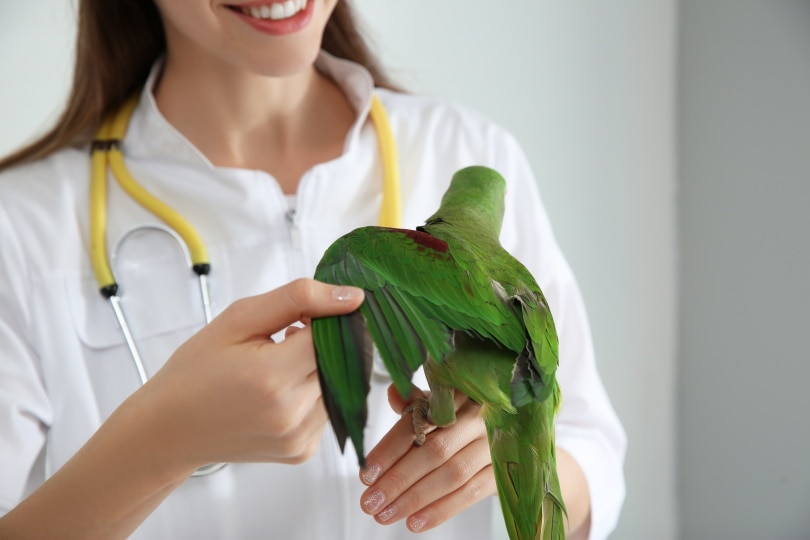
Is it Possible to Become a Vet in Two Years?
Yes, it’s possible to become a veterinarian in two years. But you must be realistic about your expectations. You’ll not graduate on time if you cannot dedicate yourself fully to the program.
If you are in good academic standing and have made it through the pre-vet requirements, it will be possible to graduate sooner. It also means taking summer courses.
It depends on how prepared you are when coming into vet school. If you have already finished all the required pre-vet classes, then there is no reason that you cannot complete your studies in two years.
Why is Vet School Fees Expensive?
Vet school is expensive. It can be worth it, depending on your career goals and income potential. But, no matter what, it’s going to be an investment that requires a large sum of money upfront.
There are many reasons why vet school fees in the UK are so expensive. One is because of the quality of education students receive while studying to become a vet in the UK.
Another reason is that vets play a crucial role in our society. There’s a limited supply of vets compared to other professions, such as doctors and nurses.
Another reason for these high costs is due to limited availability. Many universities offer vet courses through distance learning. Here, students do not get face-to-face teaching from teachers like they would if they were attending a university locally.
(TIME FOR PAWS)

Benefits of Attending Veterinary School in the UK
If you’re considering attending veterinary school in the UK, several advantages will be available to you. First, there’s no age limit to becoming a vet.
If you attend veterinary school in the UK, there are a lot of opportunities for work after you finish your studies. The first place you can work as a vet is at a small animal practice.
Also, you can go into research and academia after graduation. Good places to find these jobs include job sites such as Indeed and Simply Hired.
Conclusion
Are you thinking about studying veterinary medicine abroad? Or are you a UK citizen interested in pursuing veterinary medicine as a possible career choice? If yes, the statistics and data above present you with all the current information about the cost to help you make prior preparations.
The veterinary school fees aren’t cheap. Planning your finances well ahead of time is crucial. The animal healthcare industry is rewarding but expensive. It makes these courses the most promising career option for many students.
However, some veterinary schools offer bursaries and scholarships for underprivileged applicants. If you’re committed to becoming a vet, make sure you contact vet schools via email or phone. This way, you’ll find out how much they charge and about funding opportunities.
Featured Image Credit: H_Ko, Shutterstock







